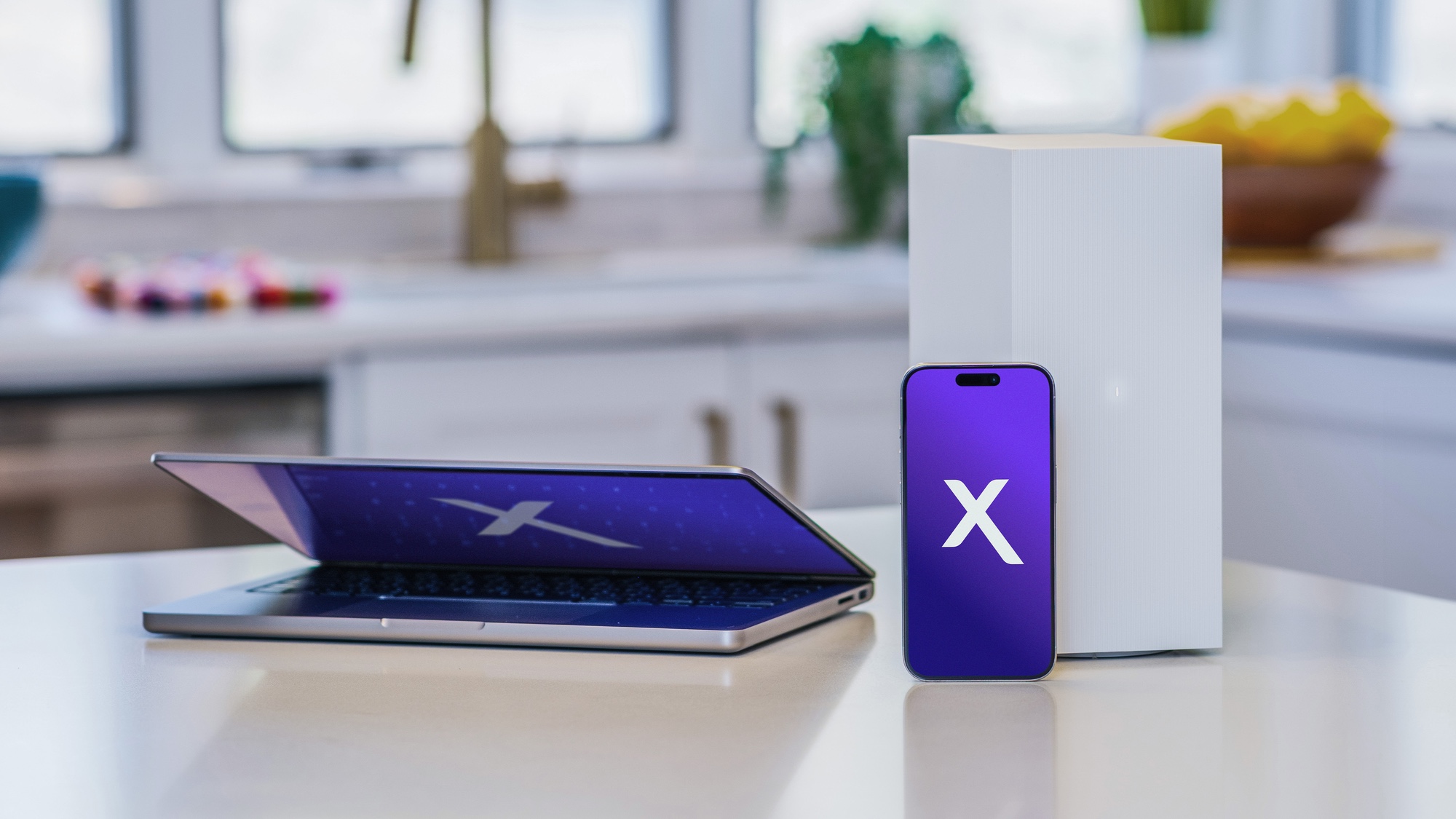Garmin Forerunner 255 vs Forerunner 265 — which is the right running watch for you?
Should you buy the Garmin Forerunner 265 or its predecessor?
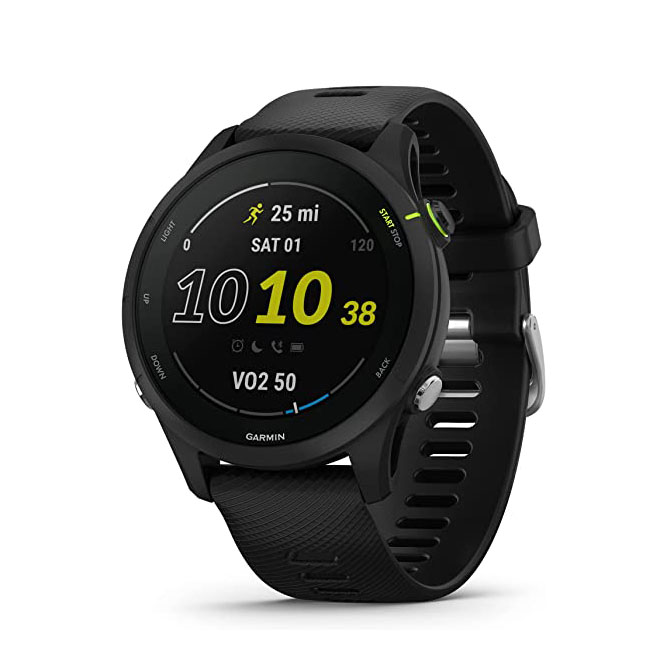
The Garmin Forerunner 255 is one generation older than the Forerunner 265, but don't let this put you off. It has multisport modes, a 14-day battery life, Garmin Pay, comprehensive fitness tracking, and is available in two sizes.
For
- Two sizes available
- Multisport/triathlon modes
- Accurate GPS
- Solid battery life
- Cheaper than the Forerunner 265
Against
- No touchscreen
- Lacks Garmin's Training Readiness score
- Limited smart features
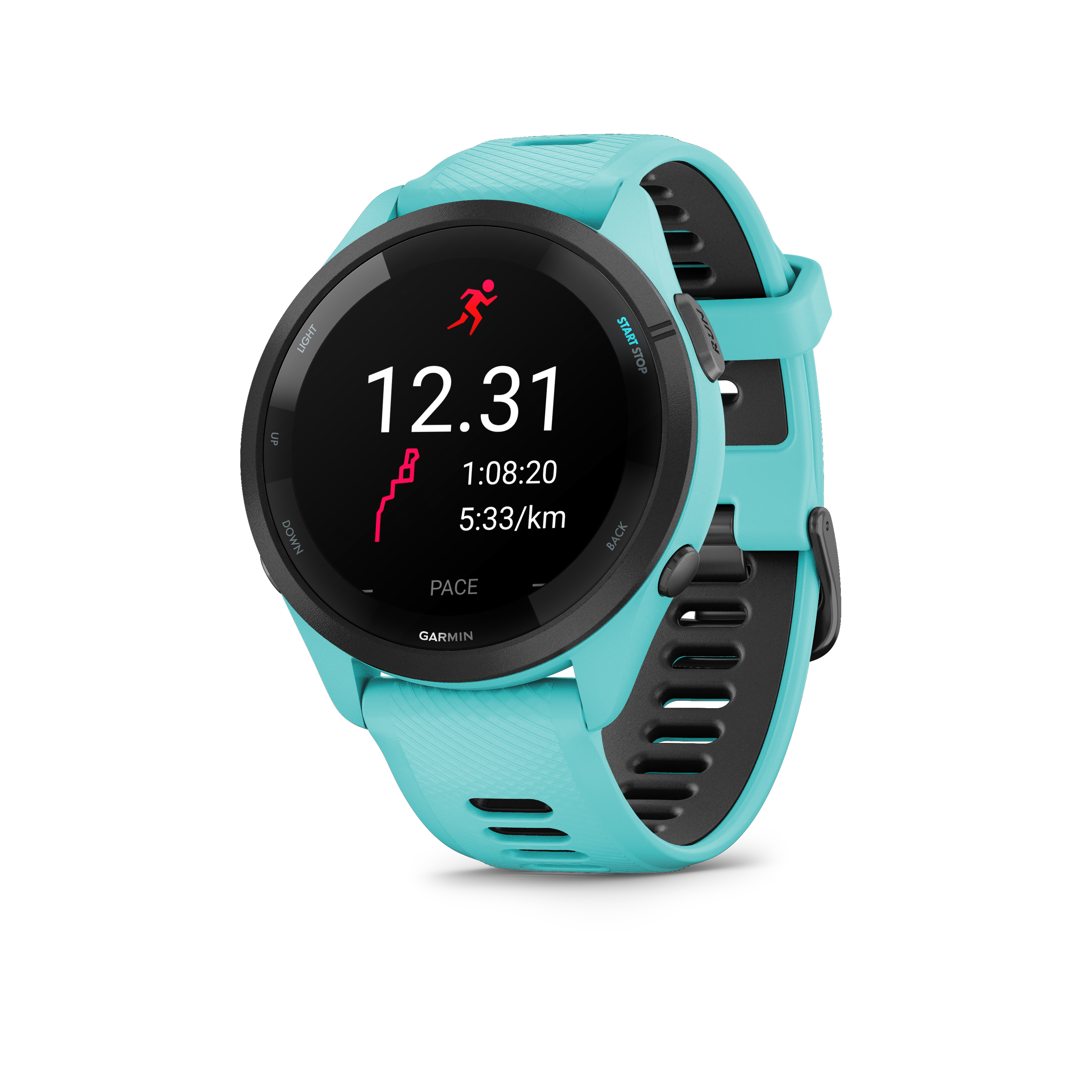
The Forerunner 265 is Garmin's latest mid-level running watch. It's pretty similar to its predecessor but features an upgraded AMOLED touchscreen that's easier to view while running. It also features Garmin's useful Training Readiness Score.
For
- Two sizes available
- Multisport/triathlon mode
- Bright AMOLED screen
- Accurate GPS
- Advanced training metrics
- Solid battery life
Against
- More expensive than 255
- Limited smartwatch features
So you’re looking for a new running watch and you’re trying to decide between the Garmin Forerunner 255 and the newer Garmin Forerunner 265.
The latter replaced the former in spring 2023 but you can still buy the Forerunner 255 new, often for a discount. The question is, should you save your money and buy the previous generation or upgrade to the latest model?
While the Forerunner 265 is the best Garmin watch for runners overall, the two wearables share a lot of tech and features that make them handy training tools, whether you’re prepping for your first triathlon or your fifth marathon.
Below, we put the two watches face-to-face to help you decide between the two. If you’re a complete beginner looking for a more basic running watch, check out the Garmin Forerunner 165, which is the top entry-level running watch on our list.
Forerunner 255 vs Forerunner 265: Price and availability
The Forerunner 265 is the newer of the two watches, released on March 2, 2023. The Forerunner 265 costs $449/£429 and comes in two versions, the Forerunner 265, which has a 1.3-inch display, and the Forerunner 265S, which has a 1.1-inch display. The watch is available now from Garmin directly and from third-party retailers.
The Garmin Forerunner 255 also comes in two different sizes — 1.1 inches (the Forerunner 255S) and 1.3 inches (the Forerunner 255); both cost the same.
The Forerunner 255 also comes with the option to store music, or not (music storage comes standard on the 265). The Forerunner 255 without music has a launch price of $349/£299, and the Forerunner 255 Music launched at $399/£349. However, it's likely that the Forerunner 255 will be discounted now.
Winner: Garmin Forerunner 255 — if you’re on a budget, the older watch is definitely likely to be a lot more affordable. Even when brand new, the Forerunner 265 retails at around $100 more than the Forerunner 255.
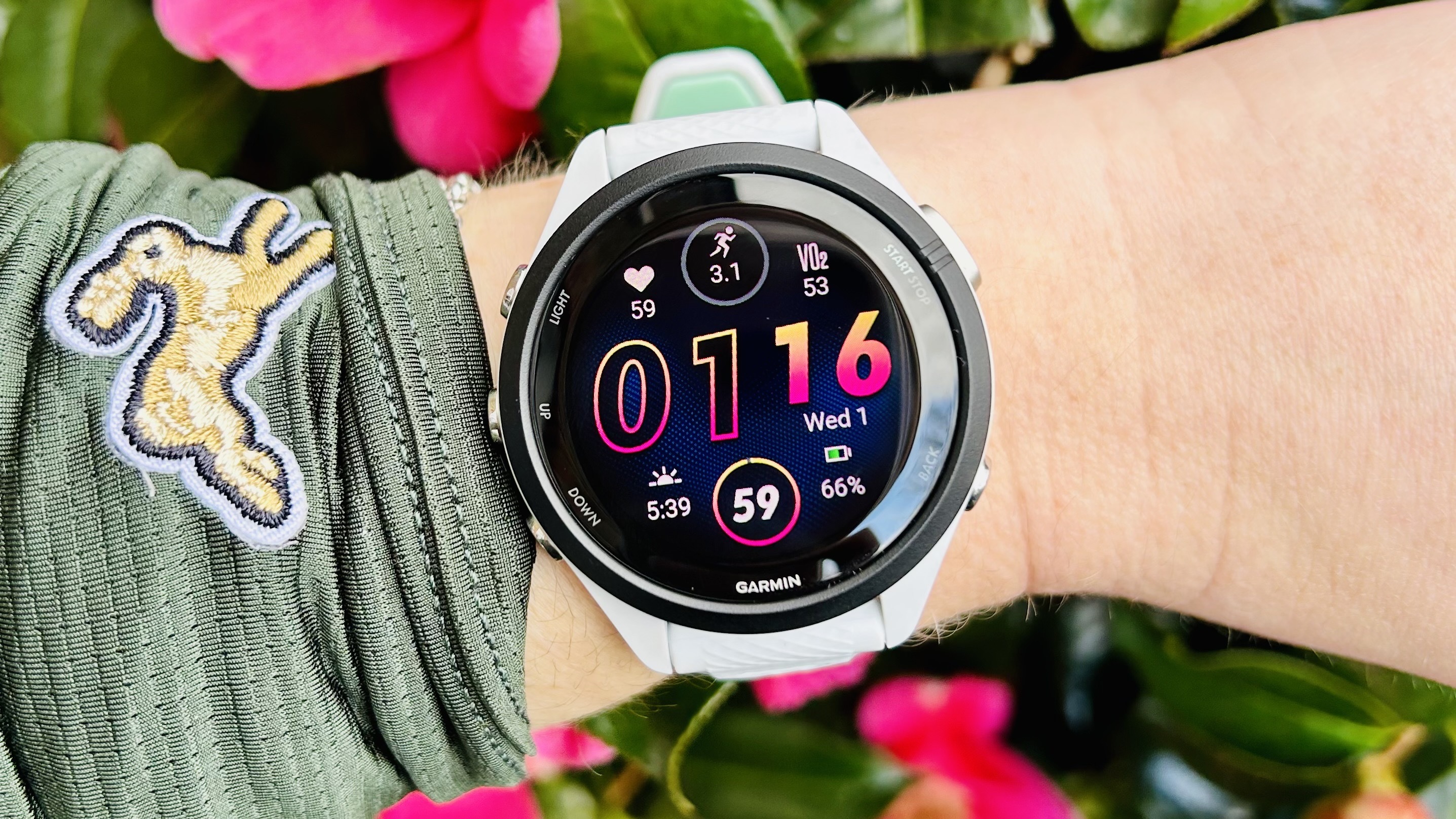
Forerunner 255 vs Forerunner 265: Specs at a glance
| Header Cell - Column 0 | Forerunner 255 | Forerunner 265 |
|---|---|---|
| Case size: | 42 mm and 46 mm | 42 mm and 46 mm |
| Display size: | 1.1 inches/1.3 inches | 1.1 inches/1.3 inches |
| Battery life (smartwatch mode): | 12 days (Forerunner 255S) / 14 days (Forerunner 255) | 15 days (Forerunner 265S)/ 13 days (Forerunner 265) |
| Battery life (GPS mode): | 26 hours without music / 5.5 hours with music (Forerunner 255S) or 30 hours without music / 6.5 hours with music (Forerunner 255) | 24 hours without music/ 7.6 hours with music (Forerunner 265S) or 20 hours without music/ 7 hours with music (Forerunner 265) |
| Built-in GPS: | Yes | Yes |
| Heart rate: | Yes | Yes |
| Garmin Pay: | Yes | Yes |
| Maps: | Yes | Yes |
| Music: | Yes (on 255/255S Music) | Yes |
| Multisport modes: | Yes | Yes |
| Advanced performance metrics: | Yes | Yes |
Forerunner 255 vs Forerunner 265: Design and display
When it’s not turned on, the Forerunner 265 looks pretty much the same as the Forerunner 255. It’s still the same, round display, with five different buttons to navigate around the watch — three on the left, and two on the right.
That said, there’s one small change to these buttons — the top start/stop button on the right-hand side now says ‘RUN’, and is slightly larger. This is a small change, but a handy reminder of which button to press when you want to pause your watch mid-run.
Once you turn the screen on, however, the changes are far more obvious.
The Forerunner 265 has a bright, beautiful AMOLED display, similar to that used on the Garmin Epix Pro. It’s the same AMOLED screen you’ll also see on the Garmin Forerunner 965. The resolution of the Forerunner 265 is 416 x 416 pixels, and 360 x 360 on the 265S.
When we compare this to the Forerunner 255, which has a color MIP display, the difference is huge — the 255 has a resolution of 260 x 260, and the 255S has a resolution of 218 x 218.
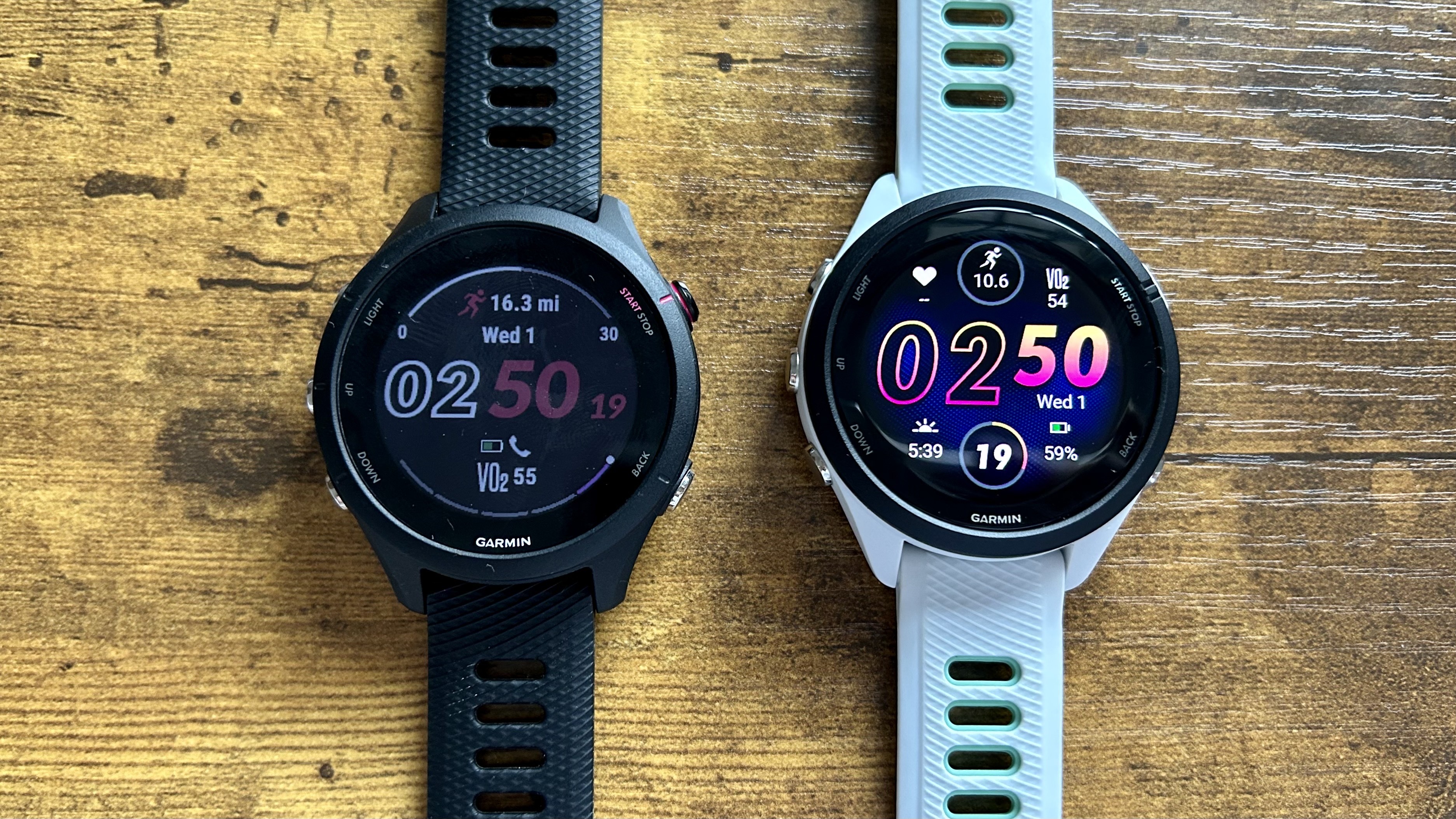
The display on the Forerunner 265 also feels different — the font has changed, as have little design features like the screen you see when you’re waiting for the watch to connect to GPS. It also has a touchscreen, which the Forerunner 255 doesn’t. This is automatically turned off when the watch is in activity mode, but it does make the watch feel more premium. During testing, we found it to be responsive, even with sweaty fingers.
Winner: Garmin Forerunner 265 — The AMOLED screen really is beautiful. It’s incredibly bright, even in direct sunlight, and gives the watch a real premium feel.
Forerunner 255 vs Forerunner 265: Battery life
Of course, the brighter the screen, the bigger the drain on battery life. That said, the battery life isn’t wildly different between the two watches: the 265S has a 15-day battery life in smartwatch mode, and a 24-hour battery life in GPS mode.
The 265 has 13 days in smartwatch mode, and 20 hours in GPS mode. Normally, it’s the larger of the two watches that has the longer battery life, but it seems with the bigger and brighter screen, the larger 265 will need charging ever so slightly sooner.
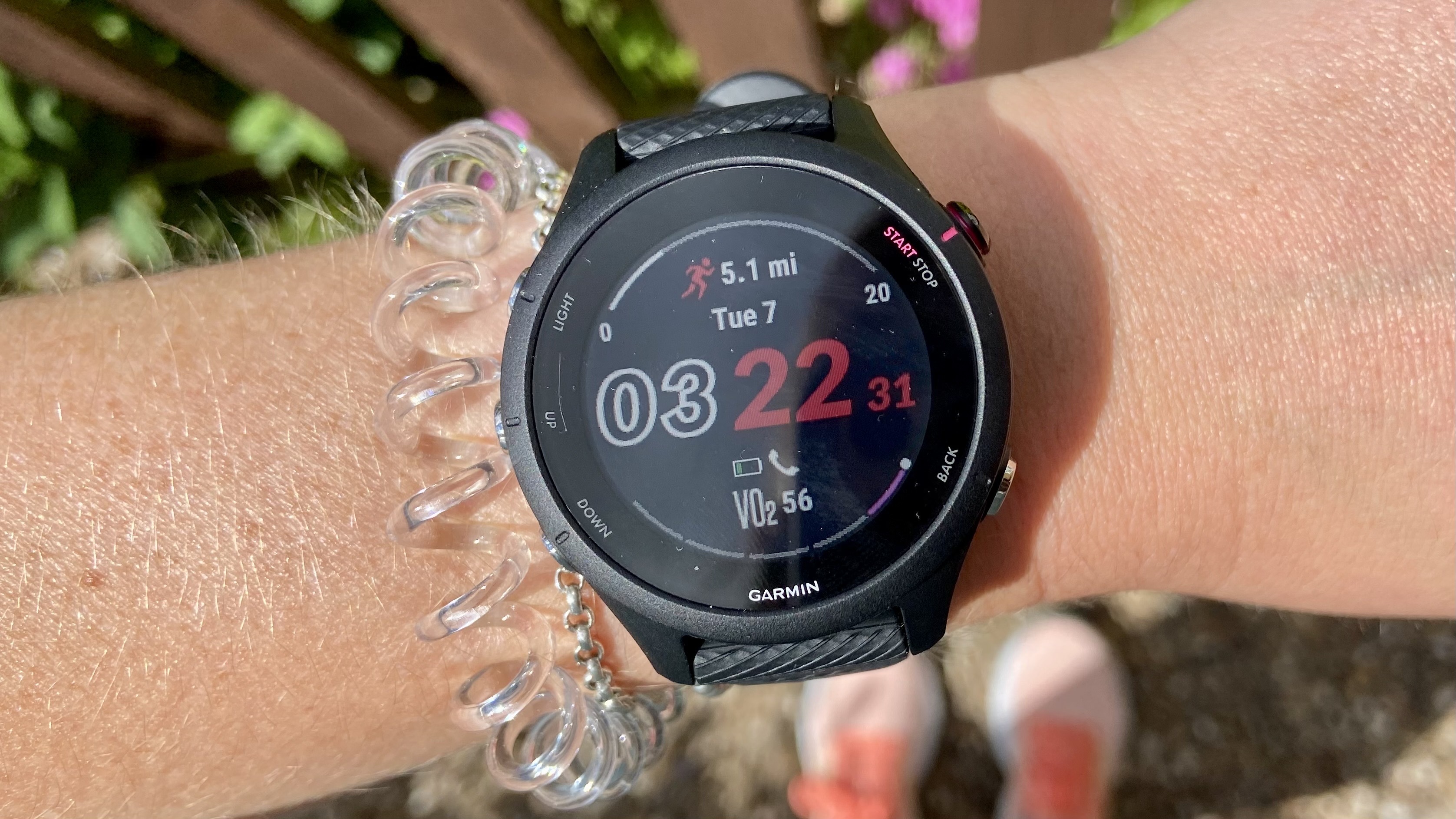
On the other hand, the Forerunner 255 lasts 14 days in smartwatch mode, and 30 hours in GPS mode without music (or 6.5 hours with music). The Forerunner 255S lasts 12 days in smartwatch mode, 26 hours in GPS mode without music, and 5.5 hours in GPS mode with music.
It seems to be when the brighter, newer watch is in GPS mode, the battery life drains faster than the older watch. Of course, 13-15 days is still a hell of a lot longer than some of the other best smartwatches on the market (Apple Watch Series 10 we’re looking at you), but if you’re after a watch you don’t need to charge, inevitably, the Forerunner 255 is the better option.
Winner: Forerunner 255 — as it doesn’t have the bright AMOLED screen, the battery life of the older watch is a little bit more impressive.
Forerunner 255 vs Forerunner 265: Fitness and tracking features
Aside from the screen, Garmin didn’t change all that much when it comes to the fitness tracking features on the watches.
The Garmin Forerunner 255 received a huge update in that, for the first time, it included multisport modes — a feature usually reserved for the more expensive running watches in the line. Both watches can track just about everything, and you can customize the data screens from the watch itself or the Garmin Connect app.
From a training perspective, the main difference between the two watches is that the Forerunner 265 has Garmin’s Training Readiness Score. The score shows you at a glance how ready you are for a difficult day of training based on sleep, recovery time, HRV status, acute load, and stress.
Each category carries a different weight, so your Training Readiness might go up during the day, as your needed recovery time goes down.
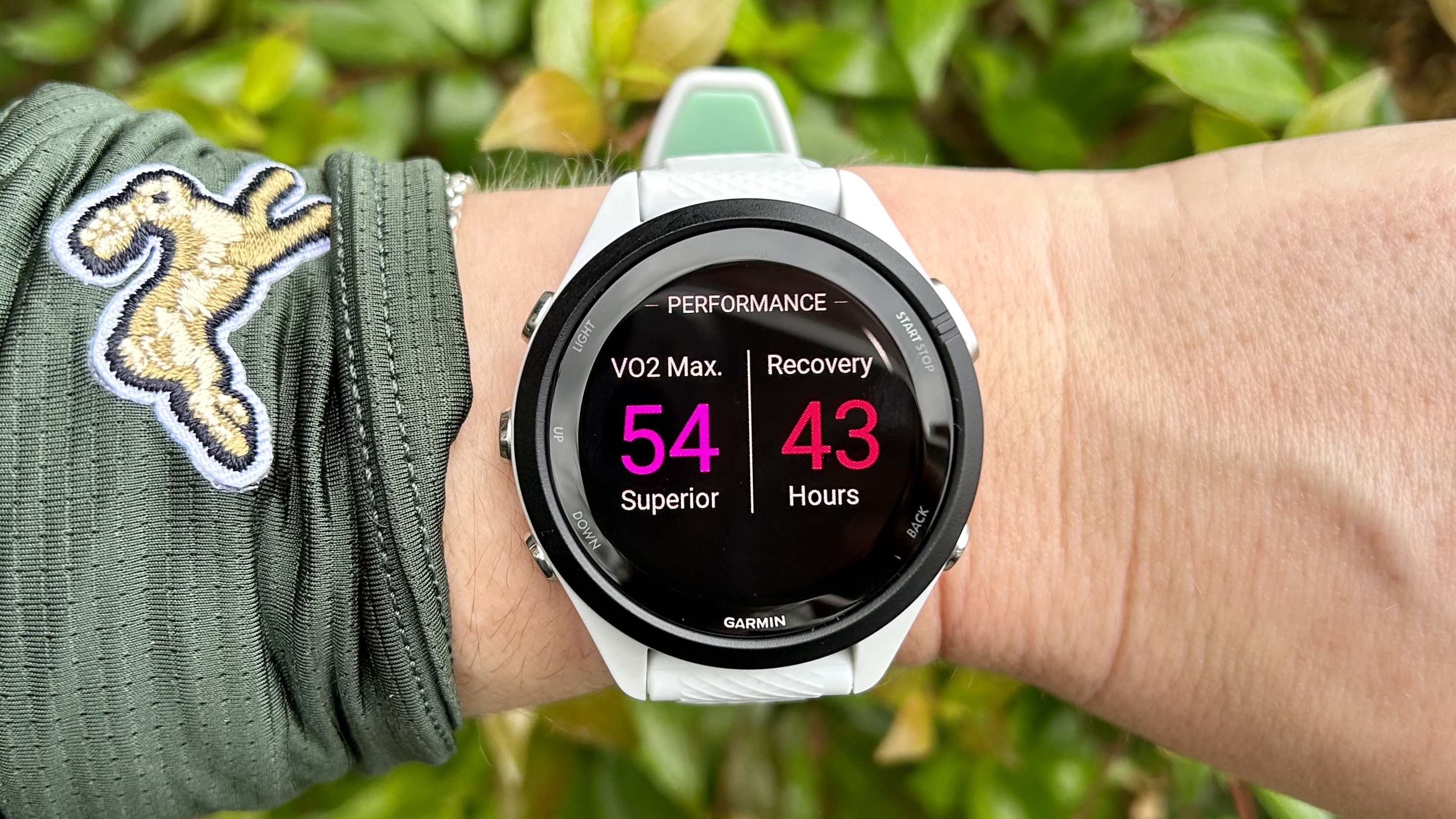
Winner: Garmin Forerunner 265 — It’s a small update, but the Training Readiness Score has, until now, been reserved for the more expensive Garmin running watches like the Fenix 8 and the Epix Pro. If you’re serious about your training, features like this help you get a better understanding of your overall health and fitness.
Forerunner 255 vs Forerunner 265: Smartwatch features
Compared to the likes of the Apple Watch, Garmin has always been one step behind from a smartwatch perspective.
Despite being designed to be worn 24/7, they aren’t all that high-spec. However, I’d argue that you don’t buy a Forerunner to check your WhatsApp from your wrist, you buy it to improve your training.
Both the Forerunner 255 Music and the Forerunner 265 have the ability to store and play music from your wrist, without needing your phone nearby. The Forerunner 265 allows you to download songs from Spotify, Deezer, and Amazon Music.
Both watches also have Garmin Pay, which comes in handy when you’re commuting or paying for things from your wrist.
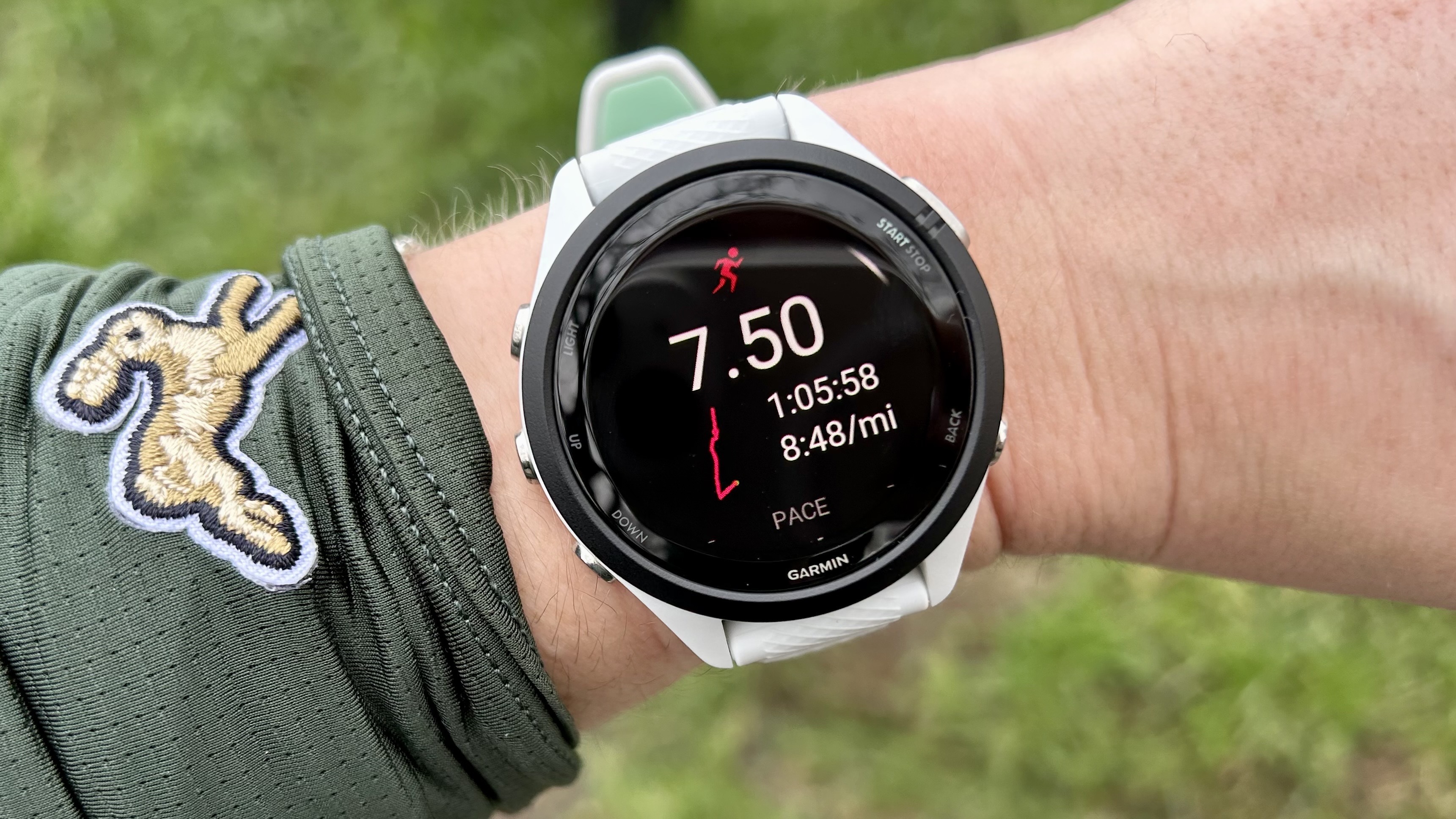
That said, I would argue that the touchscreen on the Forerunner 265 does improve it from a smartwatch perspective — it feels more premium, and it allows you to scroll around the watch with ease.
Winner: Forerunner 265 — the brighter touchscreen gives the newer watch the edge here, and puts it in a similar league to the likes of the Apple Watch.
Forerunner 255 vs Forerunner 265: Which should you buy?
The answer to this question depends on how important an AMOLED touchscreen is to you. If you’re not bothered in the slightest by the brighter screen, it’s worth saving your money and buying the Forerunner 255, as the two watches are pretty much identical otherwise.
That said, having had both on my wrist, the AMOLED screen does make the Forerunner 265 feel like a huge upgrade. If you’ve still got a Forerunner 235 or Forerunner 245 on your wrist, the difference will be even more noticeable.
When running with both the Forerunner 265 and my Fenix 7, the smaller watch was far brighter and easier to read in direct sunlight.
Both are excellent watches, but if you can afford it, go for the brighter screen.
More from Tom's Guide
Sign up to get the BEST of Tom's Guide direct to your inbox.
Get instant access to breaking news, the hottest reviews, great deals and helpful tips.

Jane McGuire is Tom's Guide's Fitness editor, which means she looks after everything fitness related - from running gear to yoga mats. An avid runner, Jane has tested and reviewed fitness products for the past five years, so knows what to look for when finding a good running watch or a pair of shorts with pockets big enough for your smartphone. When she's not pounding the pavements, you'll find Jane striding round the Surrey Hills, taking far too many photos of her puppy.
- Dan BracagliaSenior Writer, Fitness & Wearables
